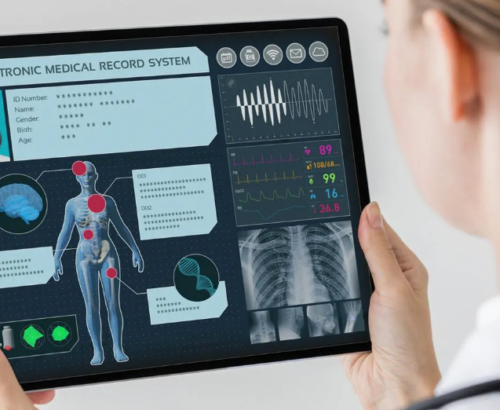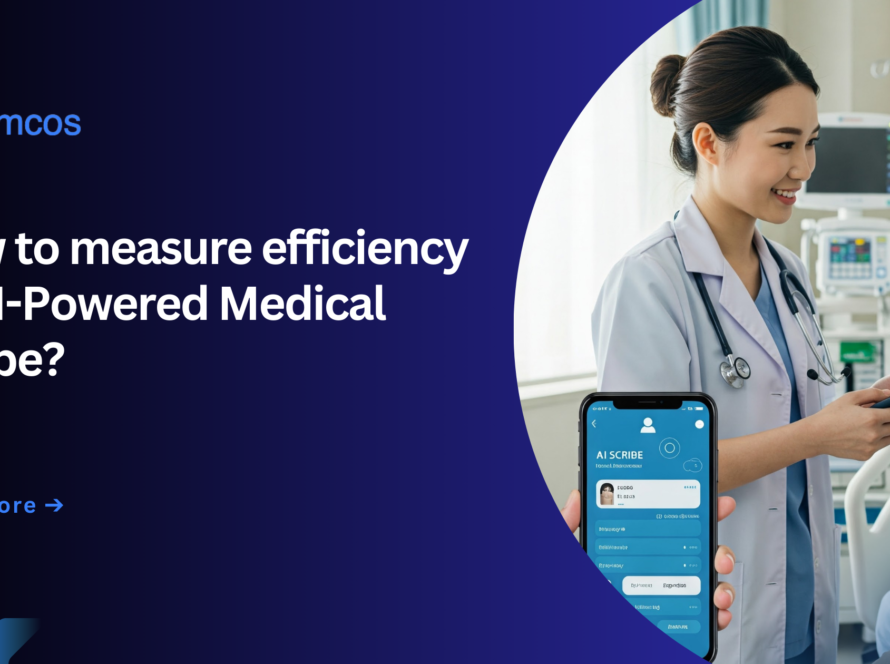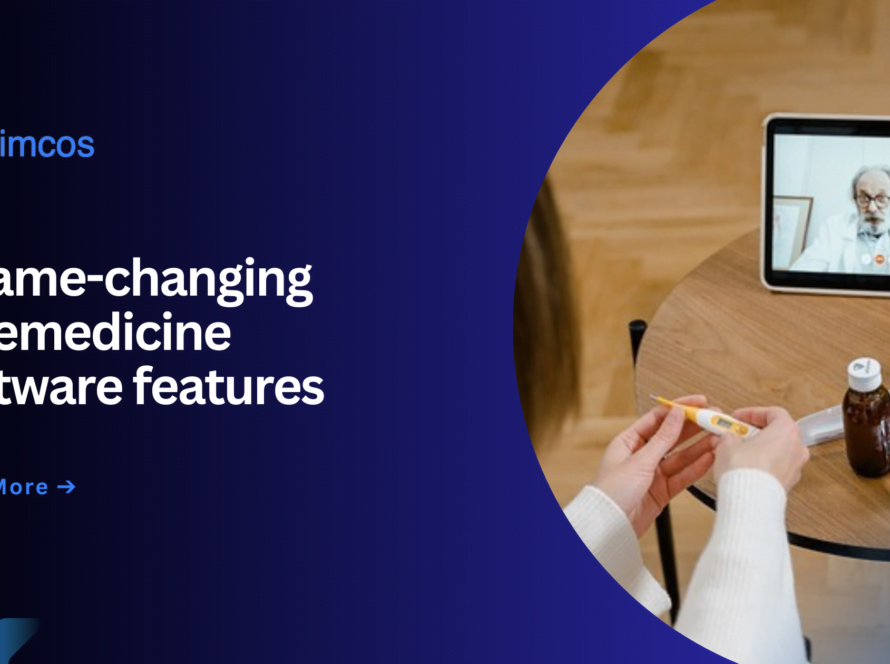Healthcare ERP has become a major agenda to work with for over 60% of healthcare organizations worldwide. Healthcare providers are always looking for ways to improve service delivery, optimize processes and achieve the best possible patient outcomes. One of the most impactful solutions that has emerged in recent years is the adoption of Enterprise Resource Planning (ERP) systems.
We assist healthcare organizations in establishing a solid foundation by using Agile development and DevOps methodologies to deliver customized, multi-channel ERP solutions. Enterprise Resource Planning (ERP) systems have revolutionized complex workflows by automating tasks across numerous industries worldwide. In healthcare, ERP solutions are invaluable for streamlining operations, eliminating data silos, and enhancing efficiency to elevate patient care. Tailored ERP software for the hospital sector enables organizations to effectively handle essential administrative and business functions such as financial accounting, inventory management, and patient services.
Table of Contents
Understanding Healthcare ERP
Healthcare ERP systems are comprehensive, integrated solutions designed to significantly enhance healthcare management efficiency. These advanced platforms go beyond basic digitization, offering a wide array of features that seamlessly organize and optimize various aspects of healthcare operations.
Key functionalities of these systems include managing patient information through a centralized database. This centralized approach ensures that healthcare providers easily access complete patient records for informed decision-making and delivering personalized care. ERP systems also simplify appointment scheduling, automating the process to better manage patient visits. This ensures effective resource allocation, reduces wait times, and enhances the overall patient experience.
At its core, the primary goal of healthcare ERP systems is to enhance the quality of patient care. By simplifying operations, minimizing administrative burdens, and optimizing resources, these systems empower healthcare professionals to devote more time and attention to their patients’ needs. This comprehensive approach improves the standard of care and patient satisfaction.

Why is Healthcare ERP Software a need for Healthcare organizations?
The healthcare industry is rapidly growing, offering new opportunities while presenting significant challenges. To stay competitive, healthcare organizations must focus on two key goals: delivering exceptional patient care and offering cost-efficient services. A tailored ERP solution can drive digital transformation across the healthcare sector.
A comprehensive healthcare ERP system allows organizations to achieve these goals by enhancing patient care quality and extending the reach of services. Integrating customized ERP software into your current infrastructure helps minimize clinical errors while boosting the productivity of healthcare professionals.
As your services and facilities expand, it becomes crucial to securely integrate patient data, including sensitive health information. This ensures clinicians and healthcare providers have real-time access to lab results and other critical patient details for precise diagnoses.
To optimize operations, healthcare organizations require streamlined communication across departments, along with the automation of administrative tasks and back-office functions. Reducing overheads and consolidating information effectively are vital for cost savings and maintaining process control. Healthcare ERP software offers a centralized platform to manage and monitor these activities efficiently.
6 Proven ways on how a Healthcare ERP Software transforms Inpatient Care
Healthcare ERP software is transforming inpatient care by solving key challenges in managing treatments, records, and daily operations. Inpatient care involves close coordination between doctors, nurses, and support staff to ensure that treatments, medications, and schedules are accurate and efficient. However, manual processes often lead to errors, delays, and extra work, which can affect patient safety and satisfaction.
ERP systems simplify these processes by providing real-time updates, automating repetitive tasks, and organizing patient data. They streamline doctor orders, help nurses track and log treatments, and manage medications to ensure timely care. Additionally, ERP software makes billing and insurance claims more accurate, reduces errors, and speeds up discharge processes. By improving efficiency and reducing administrative burdens, healthcare ERP solutions ensure better patient care and smoother hospital operations.
1. Streamlining Doctor Order Management
Healthcare ERP simplifies how doctors manage treatment orders for inpatients. It enables real-time tracking of prescriptions, procedures, and diagnostic tests with status updates (e.g., weekly, daily, or as-needed). These systems eliminate manual errors and ensure that treatment schedules are adhered to, enhancing patient safety and care outcomes. Additionally, the ERP provides doctors with the flexibility to modify treatment plans instantly, with updates immediately reflected in the system for the nursing team to act upon, fostering seamless coordination.
2. Optimizing Nurse Treatment Charts
Nurse treatment charts often involve 3x more entries than doctor orders, creating a risk of data inaccuracies. Halthcare ERP software automates and digitizes these charts, helping nurses log medication administrations, pre- and post-operative care and patient care health updates effortlessly. By providing clear, real-time records, ERPs ensure nurses focus more on patient care rather than paperwork, reducing administrative burden and improving accuracy.

3. Accurate Billing and Insurance claims
ERP systems meticulously track all inpatient activities, from prescribed treatments to medication usage and procedures performed. This comprehensive record forms the basis of accurate billing for complete patient care. By eliminating data gaps, ERPs reduce errors that lead to insurance claim rejections. For patients and healthcare providers, this means smoother claim approvals and reduced financial disputes, ensuring a stress-free post-treatment process.
4. Automating Medication management
Managing inpatient pharmacy needs, such as medication stocks, prescription tracking, and refills, is vital for uninterrupted care. ERPs automate these processes, ensuring accurate dosage schedules, preventing stock shortages, and tracking consumption patterns. By providing real-time inventory updates, ERPs help avoid medication stockouts and ensure that the right drugs are available when needed. This not only minimizes errors but also ensures timely delivery of medication, improving patient adherence to treatment plans and reducing risks associated with delayed or missed treatments. Additionally, automated alerts help staff track medication expiration dates and manage inventory efficiently.
5. Simplifying Discharge and Follow up processes
The discharge process is complex, involving final billing, treatment summaries, and follow-up scheduling. ERPs automate these steps, ensuring patients receive all necessary documentation and clear instructions for post-discharge care. The system also sets up reminders for follow-up appointments or tests, helping patients stay on track with their recovery plans. This seamless process enhances patient satisfaction and reduces the likelihood of readmissions due to missed follow-ups.
6. Rise in Staff Productivity with Task Automation
Healthcare ERP systems automate routine administrative tasks, such as patient care scheduling, resource allocation, and staff duty rosters. By reducing time spent on manual tasks, hospital staff can focus more on patient care and critical decision-making. This not only boosts productivity but also improves job satisfaction among healthcare workers, leading to better patient outcomes.
How does Himcos benefit your Healthcare organization with Healthcare ERP Software?
We empower healthcare organizations with seamlessly integrated ERP solutions. As a trusted and established provider of healthcare software, we deliver top-tier support and maintenance services.
Our advanced automation solutions are designed to tackle future challenges, enabling effortless digital transformation of healthcare services. Through Agile development and DevOps methodologies, Himcos helps healthcare businesses establish a robust foundation to create tailored and multi-channel ERP solutions.

Success Stories
With a strong foundation in healthcare, data, and technology, we deliver end-to-end digital transformation solutions. Our portfolio of successful healthcare case studies speaks for how we’ve helped medical centres and other speciality clinics with tailored solutions to achieve operational efficiency.



